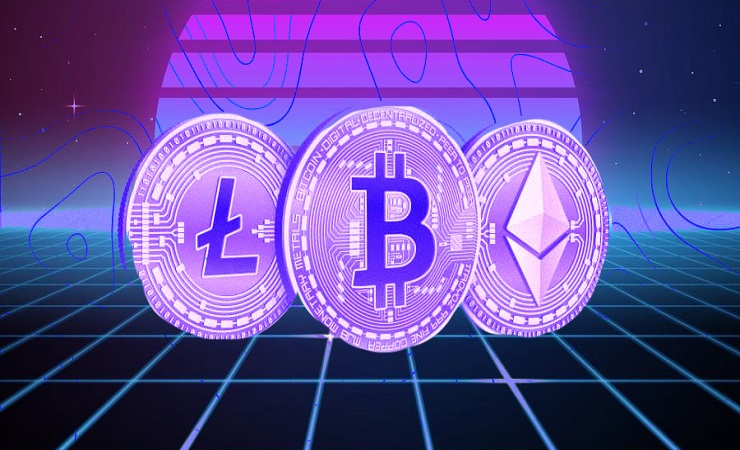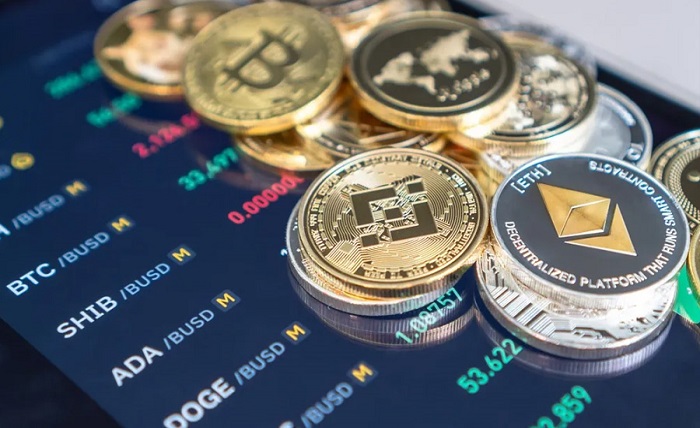Bitcoin is the most well-known cryptocurrency, and they have all swept the globe. However, the emergence of alternative coins, or altcoins, has kept pace with the market’s evolution. These digital assets are becoming more and more well-liked among traders, investors, and cryptocurrency aficionados because to their distinctive characteristics and capabilities. This blog will examine the potential of alternative currencies and potential US trends.
The cryptocurrency market is not complete without altcoins because they offer the variety and competition necessary for its expansion and stability. The importance of altcoins in the market cannot be overstated as a result of the rise of Bitcoin. They have a number of advantages over Bitcoin, including as quicker transaction times, fewer transaction fees, and more anonymity.
Altcoins are becoming more well-known and gaining traction as the bitcoin sector continues to develop. Prices of altcoins have increased as a result of investors expanding their search beyond Bitcoin and investigating other digital assets. In light of this, it’s critical to comprehend the upcoming trends and developments in the altcoin market in order to make wise investing choices. We will explore the trends that are influencing the future of cryptocurrencies in this blog and what you should be on the lookout for. So fasten your seatbelts and get ready to discover the fascinating world of altcoins!
Rise of Alternative Coins
Due to their distinctive qualities that distinguish them from Bitcoin and other cryptocurrencies, altcoins have recently experienced tremendous growth in the cryptocurrency market. They are becoming more and more well-liked among investors, traders, and cryptocurrency aficionados because they provide a variety of advantages, including as quicker transaction times, fewer fees, and greater privacy.
Beyond the financial industry, altcoin application cases have drawn interest. For instance, some alternative currencies have been developed to offer solutions for the decentralised computing, energy, and healthcare industries. As a result of increasing competition in the bitcoin industry brought on by the emergence of altcoins, innovation and growth have been sparked.
In general, altcoins have developed into a crucial component of the cryptocurrency ecosystem, offering variety and choices to consumers and investors. It’s crucial to keep an eye on the altcoin market in order to stay informed and take advantage of prospective investment possibilities given their rising popularity and distinctive qualities.
Bitcoin vs. alternative cryptocurrencies
While Bitcoin continues to be the market leader, altcoins have gained popularity because of their own qualities and abilities. Compared to Bitcoin, altcoins provide quicker transaction times, reduced transaction costs, and more anonymity. They also offer a broader selection of use cases outside of finance, such as decentralised computing, energy markets, and healthcare.
However, there are possible risks and drawbacks associated with investing in altcoins, including reduced liquidity, greater volatility, and smaller market capitalization when compared to Bitcoin. Altcoins are more vulnerable to legal and regulatory issues since the regulatory environment is frequently less clear than it is for Bitcoin.
Overall, while both Bitcoin and alternative cryptocurrencies have their benefits and drawbacks, investing in alternative cryptocurrencies can present prospects for diversification and even larger profits, albeit at a higher risk. Before making any investing decisions in the cryptocurrency market, it is crucial to carry out careful study and due diligence.
Regulations and the Environment
There is presently no established regulatory framework for these digital assets because the regulatory landscape for altcoins in the USA is still developing. Depending on their unique traits and application scenarios, altcoins are frequently governed by the same laws as stocks, commodities, or currencies.
The growth and adoption of altcoins might be impacted by regulatory ambiguity and uncertainty since businesses and investors may be reluctant to use these assets in their operations. The value and viability of cryptocurrencies can also be strongly impacted by regulatory activities, including as enforcement actions or changes to laws or regulations.
However, by offering greater investor protection, encouraging innovation, and fostering market stability, clear and well-designed regulatory frameworks could also aid in the emergence and adoption of alternative currencies. Regulators will need to strike a balance between safeguarding investors and fostering innovation and expansion in the cryptocurrency ecosystem as the market continues to change.
Potential dangers and difficulties
The cryptocurrency market has a lot of potential, but it also has a lot of risks and difficulties. Compared to Bitcoin and other well-known cryptocurrencies, altcoins frequently experience higher volatility and less liquidity. Regulatory ambiguity and uncertainty can also provide problems for firms and investors.
There are a few intriguing altcoins to keep an eye on in the foreseeable future despite these dangers. One such alternative currency is Ethereum, which, based on market capitalization, is the second-largest cryptocurrency and provides cutting-edge capabilities for decentralised applications and smart contracts. Other promising altcoins include Polkadot, which provides interoperability and cross-chain communication, and Cardano, which emphasises scalability and sustainability.
These alternative cryptocurrencies offer appealing investment options for those prepared to assume the risks associated with the altcoin market because they differ from Bitcoin and other cryptocurrencies in terms of distinctive features and competitive advantages. However, before making any judgements, as with any investment, careful research and due investigation are required.
Conclusion
A bright and vibrant area of the bitcoin industry has emerged: altcoins. While Bitcoin continues to be the market leader, altcoins have gained popularity because of their distinctive characteristics, possible applications, and benefits over Bitcoin and other cryptocurrencies. Altcoin investing does, however, come with certain inherent dangers, including as more volatility and reduced liquidity, as well as regulatory ambiguity.
Despite these difficulties, cryptocurrencies have a promising future. Altcoins are anticipated to become more crucial to the bitcoin ecosystem as the market develops and matures. They are becoming more and more well-liked among investors, traders, and cryptocurrency aficionados because they provide a variety of advantages, including as quicker transaction times, fewer fees, and greater privacy. In addition, altcoins have the ability to spur market rivalry and innovation, promoting expansion and opening up new avenues for decentralised finance and other uses.
Overall, the cryptocurrency market for altcoins is an interesting and dynamic one, and their influence on the sector is expected to increase over the next few years. To take advantage of prospective investment opportunities in this dynamic and fast-paced market, it’s imperative to keep informed and up to date with the most recent advancements and trends.
Read More You May Like:














Post Comment